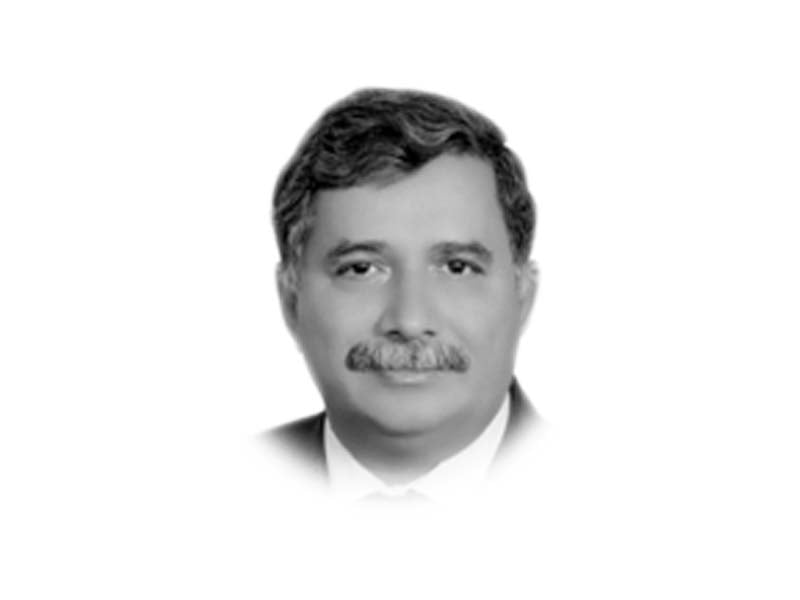
The stance of the federal and provincial governments as well as the Election Commission of Pakistan on the holding elections to the Punjab and Khyber-Pakhtunkhwa assemblies within 90 days in the wake of their dissolution has triggered an interesting constitutional and political debate on all forums.
The PTI moved the Lahore High Court and Peshawar High Court, seeking directions for the governors of Punjab and K-P to announce a date for election to the two provincial assemblies. In the meanwhile, the Supreme Court of Pakistan, in exercise of its powers under Article 184(3), also took cognizance of the matter.
Speculations are rife that the elections would not be held on time on the pretext of bad security situation, bleak economic situation, census and the stuff. Questions to be determined by the court are: who has the constitutional responsibility and authority for announcing the date for a provincial assembly election upon its dissolution in the various situations under the Constitution? How and when is the constitutional responsibility of holding election to be discharged as well as the duties of the Federation and the Province with regard to the holding of the general election? In this backdrop what is the constitutional position on status of the caretaker setup? Plain reading of the provisions of the Constitution and Elections Act 2017 indicate its short duration with a limited mandate to hold elections within a specified time.
According to the Constitution of Pakistan, sovereignty belongs to Allah and the authority has to be exercised by the people of Pakistan within the limits prescribed by Him is a sacred trust. The Constitution also postulates that it is the will of the people of Pakistan to establish an order; wherein the State shall exercise its powers and authority through the chosen representatives of the people. So this trust can only be held by the elected body and none else.
Under Article 4 of the Constitution of Pakistan, every functionary of the State is required to act in accordance with law. In this context, taking the province of K-P as a reference, the Governor acting upon the advice of the Chief Minister has dissolved the Provincial under Article 112(1). Simultaneously under Article 218 sub clause (3), the Election Commission is under an obligation to organise and conduct the election and to take steps deemed necessary to ensure that the election is conducted honestly, justly, fairly and in accordance with law, and that corrupt practices are guarded against.
Under Article 219(d) it is the foremost duty of the Election Commission to hold general elections to the National Assembly, and Provincial Assemblies. Therefore, under Article 220, all executive authorities in the Federation and in the Provinces are under obligation to assist the Commissioner and the Election Commission in the discharge of his or their functions.
Under Article 224 sub clause (2), it is also mandatory for the Election Commission to hold election with in a period of ninety days after the dissolution of the assembly.
The Election Commission of Pakistan has already written to the Governor of the Province to appoint a date for the election. In this respect, Article 105(3) of the Constitution binds the Governor to appoint an election date to the provincial assembly not later than 90 days from the date of dissolution.
The Caretaker Chief Minister must be knowing the role and functions of the Caretaker governments as set out in Chapter XIV of the Elections Act 2017. In this regard it has been ordained that a Caretaker Government shall perform its functions to attend to day-to-day matters which are necessary to run the affairs of the Government; assist the Commission to hold elections in accordance with law; restrict itself to activities that are of routine, non-controversial and urgent nature, in the public interest and reversible by the future Government elected after the elections; and be impartial to every person and political party.
The Caretaker Government shall not: take major policy decisions except on urgent matters; take any decision or make a policy that may have effect or pre-empt the exercise of authority by the future elected Government; enter into major contract or undertaking if it is detrimental to public interest; enter into major international negotiation with any foreign country or international agency or sign or ratify any international binding instrument except in an exceptional case; make promotions or major appointments of public officials but may make acting or short term appointments in public interest; transfer public officials unless it is considered expedient and after approval of the Commission; and attempt to influence the elections or do or cause to be done anything which may, in any manner, influence or adversely affect the free and fair elections.
From the aforementioned Constitutional and Elections Act’s provisions, no ambiguity appears regarding the status and mandate of the caretakers, which has been restricted to performance of day-to-day functions that are necessary to run the affairs of the Government, confining them to activities that are of routine, non-controversial and urgent nature.
Although the Supreme Court, being the guardian of the Constitution, is in a better position to interpret the Constitution and statutes, it is not out of place to mention that any other scheme not envisioned in the law may further deepen political and economic crisis.
One hopes that parties with historic legacy of struggle against dictatorial regimes will go by the Constitution to avoid overshadowing of their history of struggle for the rule of law. It is high time that we adhered to the Constitution and the Election Law.
Published in The Express Tribune, March 1st, 2023.
Like Opinion & Editorial on Facebook, follow @ETOpEd on Twitter to receive all updates on all our daily pieces.



1732085354-0/insta-(1)1732085354-0-165x106.webp)

1725366721-0/kyle-(1)1725366721-0-165x106.webp)






COMMENTS
Comments are moderated and generally will be posted if they are on-topic and not abusive.
For more information, please see our Comments FAQ